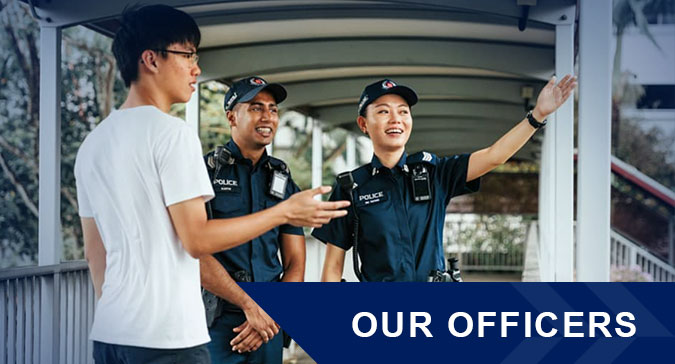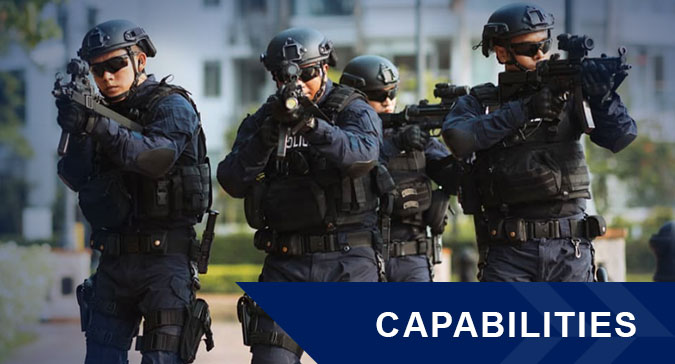Keeping air travellers safe, and more – how the Airport Police Division has helped aviation in Singapore to take flight.
By: Syam Roslan
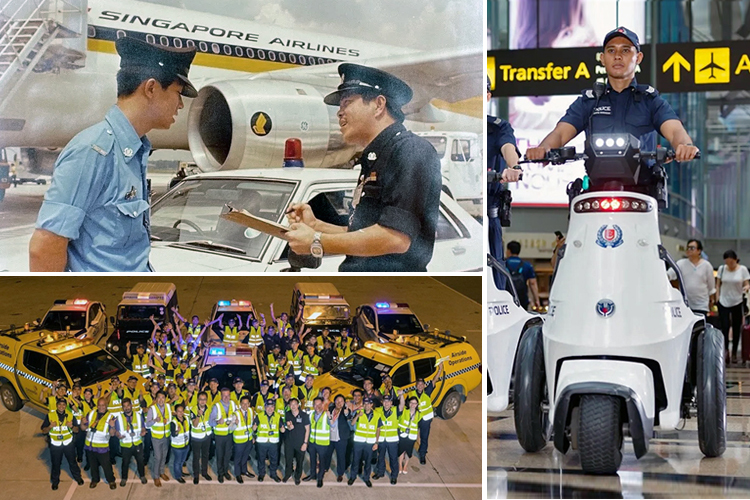
On 1 November 2020, the Singapore Police Force’s (SPF’s) Airport Police Division (APD) commemorated 50 years of aviation policing in Singapore. To mark this milestone, here’s a look at the evolution of the APD since its formation in 1970!
Early Years
The history of aviation security in Singapore goes back to 12 June 1937. This was when Kallang Airport, Singapore’s first civilian airport, was opened to the public. Then, airport security was managed by a small team of airport personnel called the Special Constabulary.
In 1953, the Special Constabulary was replaced with the Airport Constabulary due to the airport’s growing needs. The Airport Constabulary saw through the shift of airport operations to Paya Lebar Airport, which opened in 1955. This continued until 1961 when the Airport Auxiliary Police Force took over and continued to work closely with the SPF.
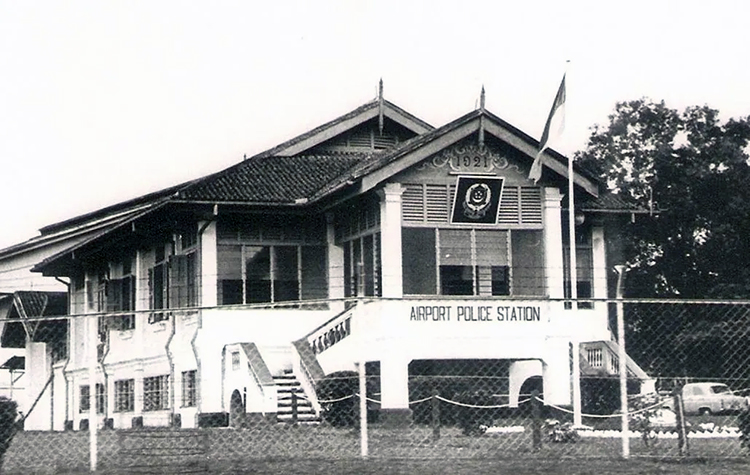
Formation of the APD
As air traffic and passenger loads increased, the SPF undertook full responsibility of airport security, leading to the formation of the APD on 1 November 1970. When it was first established, the APD was located at Paya Lebar Airport and had a modest strength of about 100 officers to conduct operations involving an annual passenger load of 1.6 million travellers.
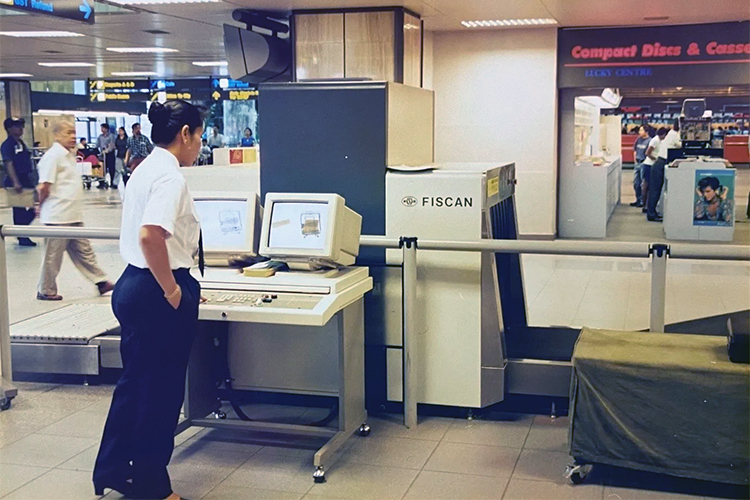
The APD started a Security Screening Unit in 1974 to conduct pre-board screening of passengers. Screenings were conducted manually by APD officers until the introduction of X-ray machines in 1976.
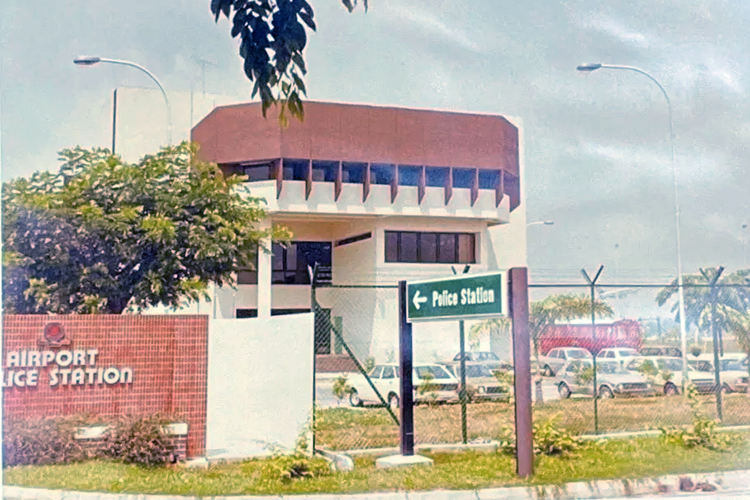
From Paya Lebar to Changi
The APD relocated to Changi on 30 June 1981 due to the shift of airport operations from Paya Lebar to Changi. This was an era of new frontiers for the APD as many milestones were achieved in tandem with a boom in air traffic and passenger loads.
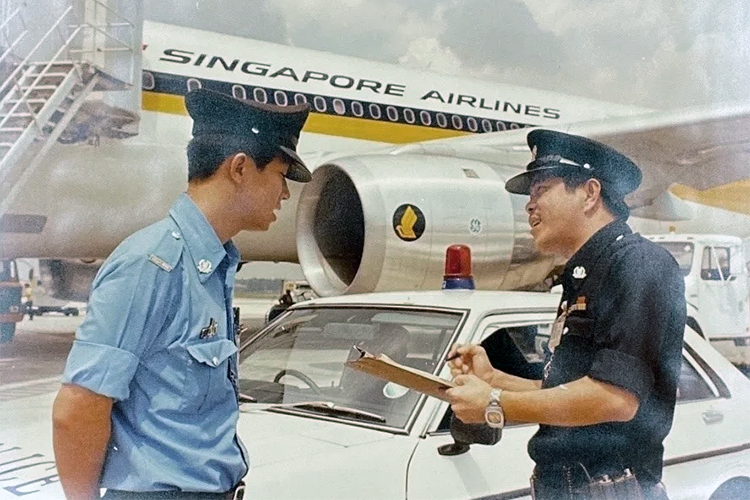
The APD underwent a baptism of fire on 28 March 1991 when Singapore Airlines flight SQ117 was hijacked by four terrorists. The swift and steadfast action of the SPF’s Special Operations Command, the Negotiations Unit, the APD and the Singapore Armed Forces led to a successful rescue operation after an eight-hour standoff, with no hostages harmed.
New Roles and Responsibilities
In 1993, the APD’s responsibilities expanded beyond general policing when the SPF was appointed the Appropriate Authority for civil aviation security in Singapore, as required by the International Civil Aviation Organization (ICAO). The APD serves as the executive arm of the SPF in carrying out regulatory functions expected of the Appropriate Authority. This role includes overseeing, regulating and reviewing all aviation security measures in our airports.
The APD is also required to conduct quality control checks on airport entities to ensure that their security measures are in line with standards and practices required under the ICAO’s civil aviation security framework.
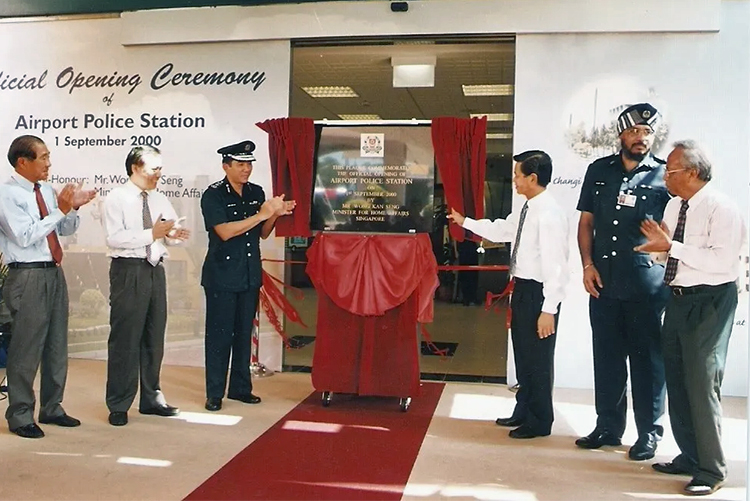
Entering the New Millennium
In 2000, the APD moved to its current site at 35 Airport Boulevard to make way for the construction of Changi Airport’s Terminal 3. During this period, the APD’s jurisdiction expanded further, with the opening of the Budget Terminal (now known as Changi Airport Terminal 4) and JetQuay (now the CIP Terminal) in 2006, as well as the opening of Terminal 3 in 2008.
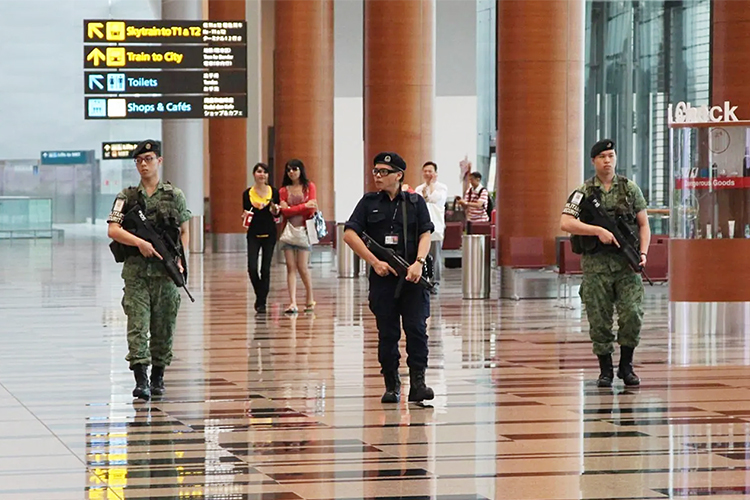
The 9/11 incident helped inform the APD’s robust aviation security regime. Airport security was greatly enhanced and, since October 2001, Police officers conduct joint foot patrols with soldiers at the airport. Dressed in their respective blue and green uniforms and armed with sub-machine guns, they help to project a strong security presence.
That same year, the APD launched a system of regular roadblocks and checks at roadways leading to the airport terminals. These extended Police presence beyond the airports.
In 2004, APD endorsed the implementation of the Hold Baggage Screening System to detect threat objects in hold baggage using automated X-ray machines. All departing passengers and their hand-carry belongings were subjected to mandatory pre-board screening.
In 2005, the APD began joint patrols with the SPF’s K-9 Unit. In 2008, the APD introduced the Regulated Air Cargo Agent Regime to ensure a secure supply chain on commercial aircraft.
Maintaining Excellence
The 2010s saw a slew of aviation security developments to augment the APD’s operations. These included the Threat-Oriented Passenger Screening Integrated System (TOPSIS), where members of the community assist officers in identifying suspicious persons at the airport. Electric Stand-Up Vehicles were launched in April 2012 and deployed daily at transit areas to enhance police presence and provide faster response to incidents.
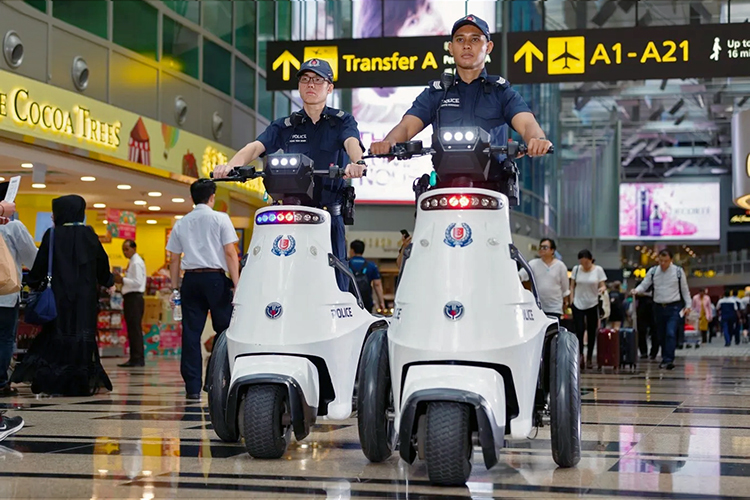
The APD’s robust aviation security regime has received international affirmation from security regulators in Australia, the United States and Europe. Singapore was ranked the best among ICAO’s Contracting States for the 2012 ICAO Universal Security Audit Programme, with zero non-compliance results during the audit.
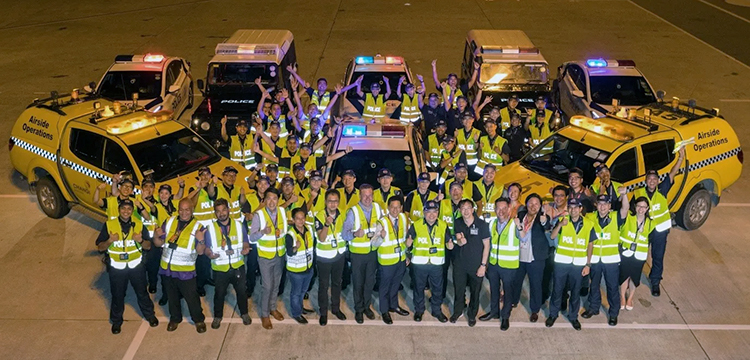
The APD received further recognition in 2015 when it was awarded the Aviation Security Organisation of the Year Award at the Emirates Group Security Aviation Security Symposium and Awards.
As a respected name in aviation security within the region, the APD organised the inaugural ASEAN Counter-Terrorism Conference on Aviation Security in 2018, in collaboration with the Ministry of Home Affairs, the Immigration & Checkpoints Authority and the INTERPOL Global Complex for Innovation.
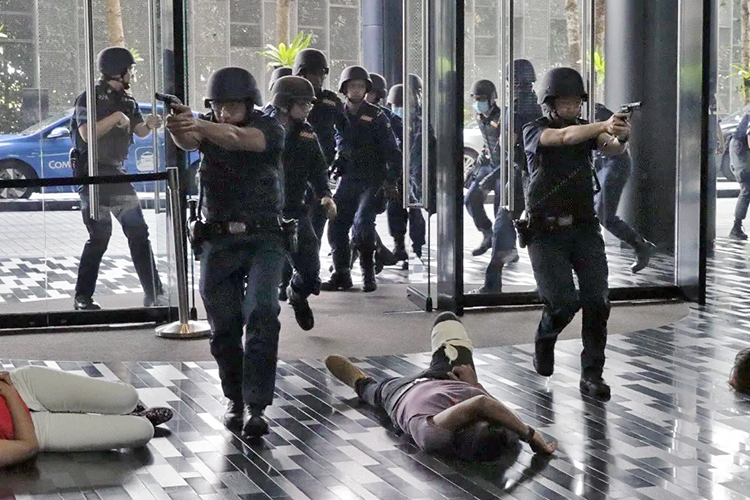
Looking Ahead
Over the past 50 years, the APD has evolved to meet new challenges and needs posed by a dynamic aviation industry. Recent years have seen new developments such as the opening of terminals and buildings such as Terminal 4 in 2017, the Seletar Airport Passenger Terminal Building in 2018 and Jewel Changi Airport in 2019. These developments demonstrate the health of Singapore’s aviation industry and the APD’s vital role in ensuring safety and security.


